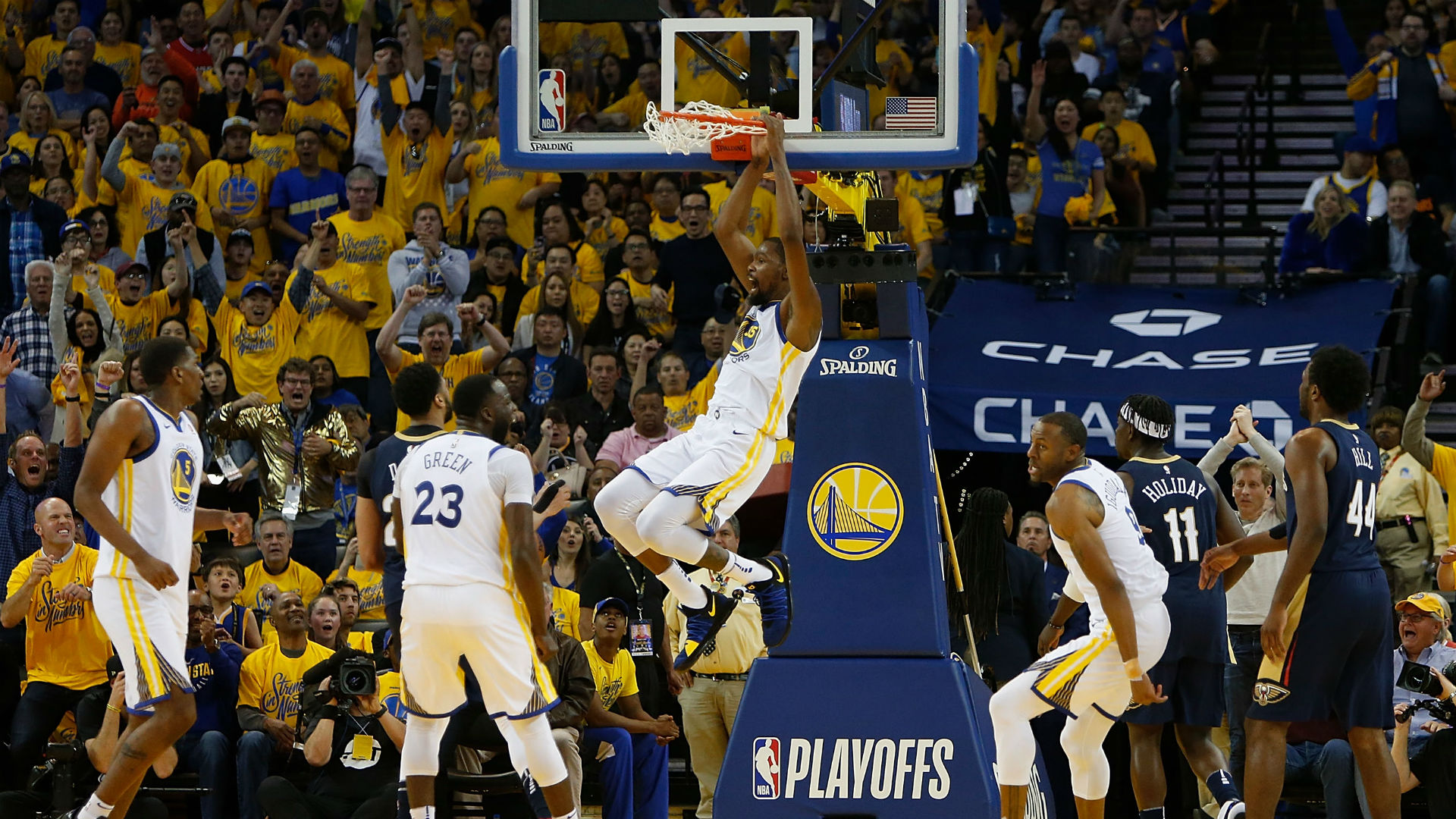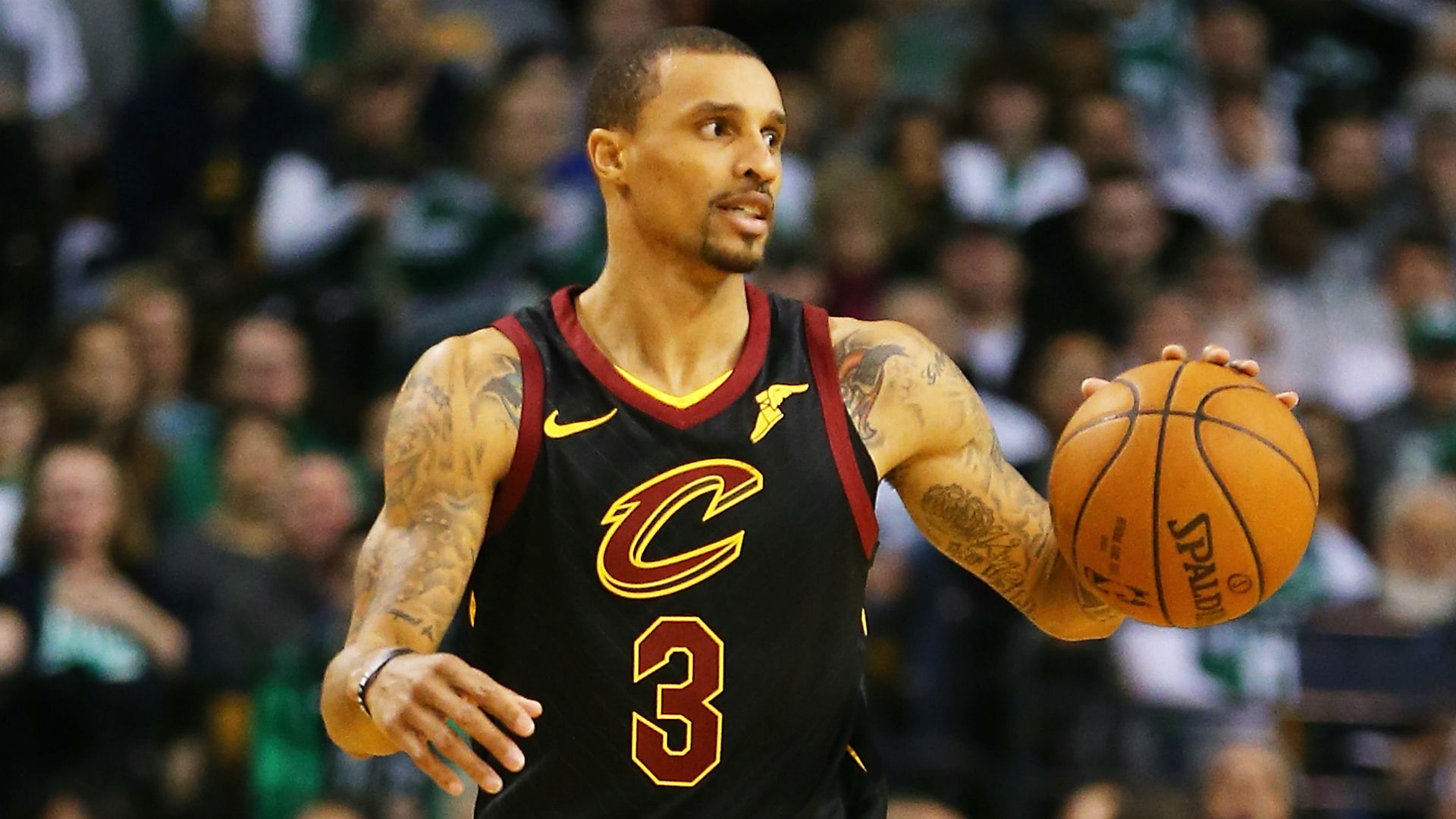Cavs vs. Warriors: The backstory
Once was interesting. Twice was a thrill. The third time settled a score. But four? Well, four is going to be a tough sell for the NBA. But here we are, with the Cavaliers and Warriors preparing to meet for the fourth consecutive time in the NBA Finals, Golden State having KO’d Cleveland in five games last spring.
The Warriors rolled through the West playoffs at 12-0 last year, but lost five games this time and went to a Game 7 against Houston in the conference finals.
Cleveland had been 12-1 before the Finals last year, but needed two Game 7s — in the first round against Indiana and in the conference finals against Boston — this year to reach the Finals. We are getting the same Finals yet again, but at least we were close to getting some different representatives.
Now that the matchup is here, though, it’s hard to see how things will be much different this time around. Golden State has the same core of players, and in last year’s Finals, the Cavs did a decent job limiting Stephen Curry and Klay Thompson, but had no answer for series MVP Kevin Durant, who averaged 35.2 points, shooting 55.6 percent from the field and 47.8 percent from the 3-point line.
The good news for Cleveland is that Durant enters this series a little off his game. He has averaged 29.0 points, but his postseason shooting has been all-too human, at 47.9 percent from the field and 32.8 percent from the 3-point line. He scored 34 points on 11-for-21 shooting in Game 7 against Houston, but in his three previous games, he shot 36.5 percent and 31.3 percent from the 3-point line.
And the Cavs could also get a boost from the knee injury that has kept forward Andre Iguodala sidelined for the last four games. Iguodala has been vital to the Warriors’ defense against Cleveland star LeBron James in all three of the Finals matchups between the teams.
But the problem for James is that this will be the worst of the four versions of the last four Cavs teams. Gone is Kyrie Irving — he averaged 29.4 points per game in last year’s series — and the role players that Cleveland brought in have mostly been flops.
Rodney Hood has been relegated to the bench, and Jordan Clarkson has shot 30.6 percent from the field in the playoffs. Larry Nance Jr. has been effective as an energy guy off the bench, and George Hill has been a solid starter, though he’s been inconsistent.
For the most part, Cleveland has leaned on its veterans, like JR Smith and Kyle Korver. But the Cavs are getting very little from anyone outside of James, who is averaging 34.0 points in the postseason. Kevin Love, who missed Game 7 of the East finals with a concussion, is the only other Cleveland player averaging double figures, at 13.9 points per game.
Durant, on the other hand, has ample help around him. Curry has averaged 24.8 points in the playoffs and Thompson is up to 20.5, shooting 42.6 percent from the 3-point line. There’s just too much depth on the Warriors’ side in this series, and there is not enough help for James.

The matchup that matters
Kevin Durant vs. LeBron James
Though the Warriors will miss Iguodala, during the season, it was Durant who spent the bulk of the time defending James, guarding him for 77 possessions total and allowing 11.5 points. James shot 50 percent when guarded by Durant, but just 16.7 percent from the 3-point line.
On the flip side, it will be interesting to see how much James will guard Durant. During the season, the Cavs and Warriors faced each other twice, and in both games, Cleveland had Jae Crowder defending Durant primarily.
Now that Crowder is gone, will that role fall to James? He guarded Durant on 20 possessions in the regular season, and Durant shot 66.7 percent against him.
The key player
George Hill
Not many players can say they’ve outplayed Curry head-to-head over the lengths of their careers, but Hill has certainly come close, and if Cleveland is to have any shot at keeping up with the Warriors, it will be up to Hill to keep those numbers going.
In his career, Hill is 10-4 against Curry. He averages 13.1 points to Curry’s 19.0, but Curry is a 23.0-points-per-game scorer in his career. And Hill has been the better shooter in their matchups, making 48.4 percent from the field and 51.1 percent from the 3-point line. For Curry, those numbers are 46.1 percent from the field and 42.9 percent from the 3-point line.
Hill outplaying Curry in this series won’t necessarily mean that the Cavs can win. But it’d be a big help in keeping things close.

The big number
4.3
You have to like Cleveland’s chances should these games wind up tight. In clutch situations — the score within five points with five minutes to go — the Cavs have been nearly unbeatable, going 7-1 in the postseason and posting a plus/minus of 4.3, best of any playoff team.
The Warriors, on the other hand, have been bizarrely underwhelming in clutch situations, just 2-3 in five games with clutch situations. They’ve shot 26.3 percent from the field and 14.3 percent from the 3-point line. In all, they’re a minus-1.2 in the clutch.
Of course, the challenge for Cleveland will be keeping the game close enough to have clutch situations — eight of Golden State’s 12 playoff wins have been by double digits.
Cavs vs. Warriors: The prediction
Having the same teams in the Finals for four straight years is not great for the NBA, especially when the league has tried to institute rules to make it difficult for teams to establish dynasties. Making this a double-bad outcome for the league is that we’ll enter this series much as we did last year — knowing that Cleveland does not have much of a chance.
The Warriors are too deep in talent, and if the Cavs can figure out how to slow down Durant, there are just too many other weapons on the Golden State side. This should not be a long series.
No comments:
Post a Comment